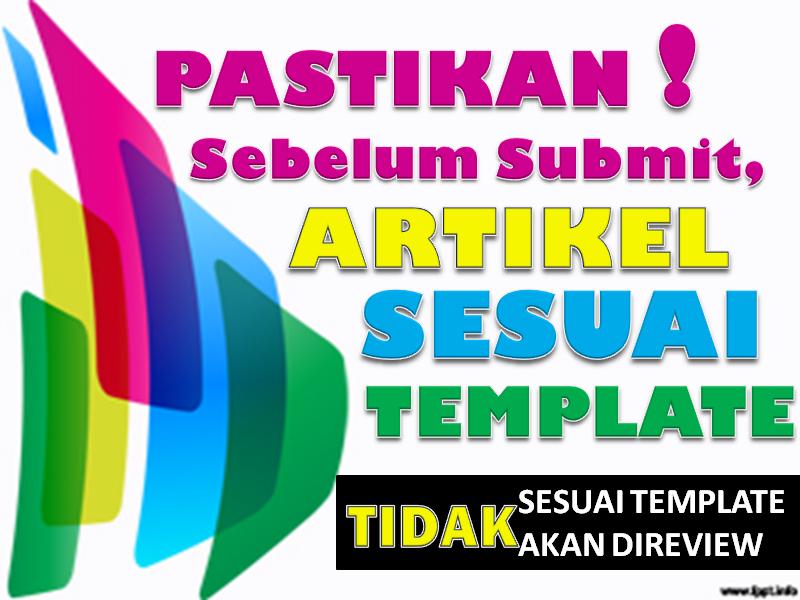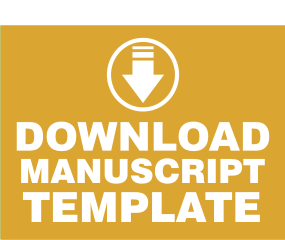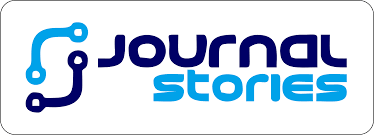Menumbuhkan Motivasi Belajar Dari Aspek Value, Expectancy dan Self Regulated Learning
(1) Departemen Sosiologi, PPPPTK PKN & IPS Kementerian Pendidikan & Kebudayaan
(2) Makassar State University
(*) Corresponding Author
DOI: https://doi.org/10.26858/publikan.v9i1.8509
Abstract
Keywords
Full Text:
PDFReferences
Ambrose, S. A., Bridges, M. W., DiPietro, M., Lovett, M. C., & Norman, M. K. (2010). How Learning Works: Seven Research-Based Principles for Smart Teaching (1st ed.). San Francisco: John Wiley & Sons, Inc.
Beishuizen, J., & Steffens, K. (2011). A Conceptual Framework for Research on Self-Regulated Learning. In R. Carneiro, P. Lefrere, K. Steffens, & J. Underwood (Eds.), Self-Regulated Learning in Technology Enhanced Learning Environments (pp. 3–19). Rotterdam: SensePublishers. https://doi.org/10.1007/978-94-6091-654-0_1
Bergey, B. W., Parrila, R. K., & Deacon, S. H. (2018). Understanding the academic motivations of students with a history of reading difficulty: An expectancy-value-cost approach. Learning and Individual Differences, 67, 41–52. https://doi.org/10.1016/j.lindif.2018.06.008
Bhuasiri, W., Xaymoungkhoun, O., Zo, H., Rho, J. J., & Ciganek, A. P. (2012). Critical success factors for e-learning in developing countries: A comparative analysis between ICT experts and faculty. Computers & Education, 58(2), 843–855. https://doi.org/10.1016/j.compedu.2011.10.010
Broadbent, J., & Poon, W. L. (2015). Self-regulated learning strategies & academic achievement in online higher education learning environments: A systematic review. The Internet and Higher Education, 27, 1–13. https://doi.org/10.1016/j.iheduc.2015.04.007
Cheng, G., & Chau, J. (2013). Exploring the relationship between students’ self-regulated learning ability and their ePortfolio achievement. The Internet and Higher Education, 17, 9–15. https://doi.org/10.1016/j.iheduc.2012.09.005
Cho, M.-H., Kim, Y., & Choi, D. (2017). The effect of self-regulated learning on college students’ perceptions of community of inquiry and affective outcomes in online learning. The Internet and Higher Education, 34, 10–17. https://doi.org/10.1016/j.iheduc.2017.04.001
Dietrich, J., Viljaranta, J., Moeller, J., & Kracke, B. (2017). Situational expectancies and task values: Associations with students’ effort. Learning and Instruction, 47, 53–64. https://doi.org/10.1016/j.learninstruc.2016.10.009
Eccles, J. S., & Wigfield, A. (2002). Motivational Beliefs, Values, and Goals. Annual Review of Psychology, 53(1), 109–132. https://doi.org/10.1146/annurev.psych.53.100901.135153
Foster, N. L., Rawson, K. A., & Dunlosky, J. (2018). Self-regulated learning of principle-based concepts: Do students prefer worked examples, faded examples, or problem solving? Learning and Instruction, 55, 124–138. https://doi.org/10.1016/j.learninstruc.2017.10.002
Hamilton-Ekeke, & Joy-Telu. (2016). Improving Self-Regulated Learning Style amongst Students. International Journal of Secondary Education, 3(6), 72. https://doi.org/10.11648/j.ijsedu.s.2015030601.12
Hsiao, H.-S., Tsai, C.-C., Lin, C.-Y., & Lin, C.-C. (2012). Implementing a self-regulated WebQuest learning system for Chinese elementary schools. Australasian Journal of Educational Technology, 28(2). https://doi.org/10.14742/ajet.876
Keller, J., & Suzuki, K. (2004). Learner motivation and E-learning design: A multinationally validated process. Journal of Educational Media, 29(3), 229–239. https://doi.org/10.1080/1358165042000283084
Kizil, A. Ş., & Savran, Z. (2016). SELF-REGULATED LEARNING IN THE DIGITAL AGE: AN EFL PERSPECTIVE. Novitas-ROYAL (Research on Youth and Language), 10(2), 147–158.
Maldonado-Mahauad, J., Pérez-Sanagustín, M., Kizilcec, R. F., Morales, N., & Munoz-Gama, J. (2018). Mining theory-based patterns from Big data: Identifying self-regulated learning strategies in Massive Open Online Courses. Computers in Human Behavior, 80, 179–196. https://doi.org/10.1016/j.chb.2017.11.011
Narciss, S., Proske, A., & Koerndle, H. (2007). Promoting self-regulated learning in web-based learning environments. Computers in Human Behavior, 23(3), 1126–1144. https://doi.org/10.1016/j.chb.2006.10.006
Pintrich, P. R. (1999). The role of motivation in promoting and sustaining self-regulated learning. International Journal of Educational Research, 31(6), 459–470. https://doi.org/10.1016/S0883-0355(99)00015-4
Pintrich, P. R. (2000). The Role of Goal Orientation in Self-Regulated Learning. In Handbook of Self-Regulation (pp. 451–502). Elsevier. https://doi.org/10.1016/B978-012109890-2/50043-3
Pintrich, P. R. (2004). A Conceptual Framework for Assessing Motivation and Self-Regulated Learning in College Students. Educational Psychology Review, 16(4), 385–407. https://doi.org/10.1007/s10648-004-0006-x
Santrock, J. W. (2018). Educational psychology (Sixth Edition). New York: McGraw-Hill Education.
Schunk, D. H. (2012). Learning theories: an educational perspective (6th ed). Boston: Pearson.
Slavin, R. E. (2018). Educational Psychology: theory and practice (Twelfth edition). NY, NY: Pearson.
Wigfield, A., & Cambria, J. (2010). Students’ achievement values, goal orientations, and interest: Definitions, development, and relations to achievement outcomes. Developmental Review, 30(1), 1–35. https://doi.org/10.1016/j.dr.2009.12.001
Wigfield, A., & Eccles, J. S. (2000). Expectancy–Value Theory of Achievement Motivation. Contemporary Educational Psychology, 25(1), 68–81. https://doi.org/10.1006/ceps.1999.1015
Winters, F. I., Greene, J. A., & Costich, C. M. (2008). Self-Regulation of Learning within Computer-based Learning Environments: A Critical Analysis. Educational Psychology Review, 20(4), 429–444. https://doi.org/10.1007/s10648-008-9080-9
Xu, J. (2017). Homework Expectancy Value Scale for high school students: Measurement invariance and latent mean differences across gender and grade level. Learning and Individual Differences, 60, 10–17. https://doi.org/10.1016/j.lindif.2017.10.003
Zimmerman, B. J. (2008). Investigating Self-Regulation and Motivation: Historical Background, Methodological Developments, and Future Prospects. American Educational Research Journal, 45(1), 166–183. https://doi.org/10.3102/0002831207312909
Zimmerman, B. J. (2015). Self-Regulated Learning: Theories, Measures, and Outcomes. In International Encyclopedia of the Social & Behavioral Sciences (pp. 541–546). Elsevier. https://doi.org/10.1016/B978-0-08-097086-8.26060-1
Zumbrunn, S., Tadlock, J., & Roberts, E. D. (2011). Encouraging Self-Regulated Learning in the Classroom: A Review of the Literature. Metropolitan Educational Research Consortium (MERC), Virginia Commonwealth University. Retrieved from http://www.self-regulation.ca/uploads/5/6/2/6/56264915/encouraging_self_regulated_learning_in_the_classroom.pdf.
Article Metrics
Abstract view : 2199 times | PDF view : 9 timesRefbacks
- There are currently no refbacks.
Copyright (c) 2019 Lilik Tahmidatien, Wawan Krismanto

This work is licensed under a Creative Commons Attribution-NonCommercial-ShareAlike 4.0 International License.
Publikasi Pendidikan : Jurnal Pemikiran, Penelitian dan Pengabdian Masyarakat Bidang Pendidikan
ISSN 2548-6721 (online), ISSN 2088-2092 (print)
Email: [email protected]

Publikasi Pendidikan is licensed under a Creative Commons Attribution-ShareAlike 4.0 International License.
Publikasi Pendidikan : Jurnal Pemikiran, Penelitian dan Pengabdian Masyarakat Bidang Pendidikan Indexed by

































